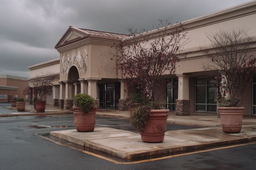Expert Commentary
Latest Articles
Additional Insured Issues
What Does "Arising Out of Work" Really Mean?
Julian Ehrlich | February 27, 2026
Julian Ehrlich examines the phrase and its variations, and reviews a recent high court case that provides new guidance in both the coverage and contractual indemnity contexts.
Catastrophe Risk Management
Rethinking the Insurability of Natural Catastrophes
John E Putnam | February 27, 2026
John Putnam revisits traditional insurability criteria, outlines current stressors, and proposes innovative approaches to address the many challenges posed by evolving climatic risks.
Workers Compensation Issues
20 Workers Comp Issues to Watch in 2026
Mark Walls, Kimberly George | February 27, 2026
Mark Walls and Kimberly George discuss essential issues for every risk manager, HR manager, and insurance professional to monitor in 2026.
Valuation of Insurance Organizations
Elevated Construction and Power Generation Equipment Costs for AI Data Centers
John Ray | February 20, 2026
Expansion and supply are limited by the rise in costs and lead times of construction and equipment, as well as the lack of skilled trades to perform the work. John Ray looks at the factors.
Tech
Data Center Construction: 10 Hidden Risk Management Concerns and Technology to Solve Them
Bret Bush | February 13, 2026
Bret Bush advises taking advantage of the latest advances in Internet of Things monitoring technology to keep projects on track and protect high-value investments.
Insurance Agent E and O
Explain Ordinance or Law Coverage to Avoid E&O Claims
Brent Winans | February 6, 2026
How much is enough? Brent Winans examines the factors to consider.
Subcontractor Performance Risk
Lean and Green: Building Efficiency for a Sustainable Future
Cheri Hanes | February 6, 2026
Cheri Hanes explains how aligning process efficiency with sustainability goals can help project teams build smarter, safer, and more resilient structures.
Commercial Property
Vacancy—What Does It Mean for Commercial Property Coverage?
Catherine L Trischan | January 30, 2026
Catherine Trischan discusses the confusion surrounding the vacancy condition, including various court rulings, and the importance of a thorough understanding by the insurance agent and insured.
Leadership at All Levels
Women in Construction Leadership Lens: Beliefs, Bonds, and Brands
Tricia Kagerer | January 30, 2026
Tricia Kagerer provides insights from the first IRMI Women in Construction networking event.
Courts and Coverage
A Successful Trial Starts with the End
Doug Marcello | January 30, 2026
The closing argument should never be left as a final thought; it should be a guiding document. Doug Marcello explains.

Additional Insured Issues
What Does "Arising Out of Work" Really Mean?
Julian Ehrlich | February 27, 2026

Catastrophe Risk Management
Rethinking the Insurability of Natural Catastrophes
John E Putnam | February 27, 2026

Workers Compensation Issues
20 Workers Comp Issues to Watch in 2026
Mark Walls, Kimberly George | February 27, 2026

Valuation of Insurance Organizations
Elevated Construction and Power Generation Equipment Costs for AI Data Centers
John Ray | February 20, 2026

Tech
Data Center Construction: 10 Hidden Risk Management Concerns and Technology to Solve Them
Bret Bush | February 13, 2026

Insurance Agent E and O
Explain Ordinance or Law Coverage to Avoid E&O Claims
Brent Winans | February 6, 2026

Subcontractor Performance Risk
Lean and Green: Building Efficiency for a Sustainable Future
Cheri Hanes | February 6, 2026

Commercial Property
Vacancy—What Does It Mean for Commercial Property Coverage?
Catherine L Trischan | January 30, 2026

Leadership at All Levels
Women in Construction Leadership Lens: Beliefs, Bonds, and Brands
Tricia Kagerer | January 30, 2026












